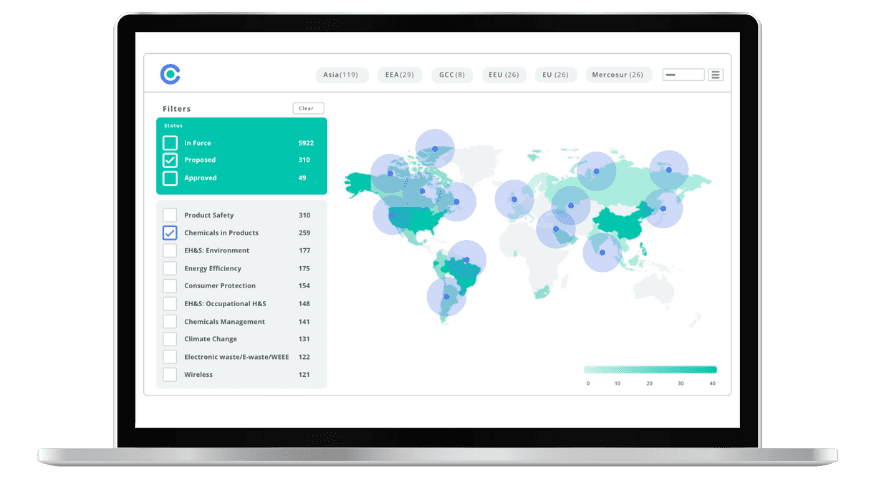
EU: Final Text of EU Framework Regulation for Setting Ecodesign Requirements for Sustainable Products (ESPR) Published

This blog was originally posted on 28th June, 2024. Further regulatory developments may have occurred after publication. To keep up-to-date with the latest compliance news, sign up to our newsletter.
AUTHORED BY MICHELLE WALSH, SENIOR LEGAL TEAM LEADER, COMPLIANCE & RISKS
Introduction
The final text of the Framework Regulation for Setting Ecodesign Requirements for Sustainable Products (ESPR) was published today in the Official Journal of the European Union. This marks a monumental day for circular economy with the approval of a new framework for making sustainable products the norm on the EU market.
In this blog, we give an overview of the EU’s Regulation for Setting Ecodesign Requirements for Sustainable Products (ESPR).
Overview and Scope
The ESPR Regulation (EU) 2024/1781 applies to the broadest range of products possible (with very limited exceptions) including for the first time intermediate products such as iron, steel, and aluminium.
It repeals the existing Ecodesign Directive 2009/125/EC and moves beyond energy efficiency to encompass a broad range of circularity and sustainability requirements for products.
Requirements Under the ESPR
Ecodesign requirements which are split between performance requirements and information requirements cover circular products aspects such as durability, reusability, repairability, recyclability etc. The specific products requirements (both vertical and horizontal) will be later set out in the Delegated Acts issued pursuant to this framework.
New requirements include the introduction of a digital products passport, substances of concern and mandatory green public procurement requirements.
The text includes an outright ban on the destruction of unsold apparel, clothing accessories and footwear listed in Annex VII from 19 July 2026.
Economic operators must also annually disclose information on unsold consumer products that are directly discarded by them or discarded on their behalf on their own websites. The first disclosure shall cover unsold consumer products discarded during the first full financial year during which this Regulation is in force.
Medium-sized enterprises have until 19 July 2030 to comply with the disclosure requirements on discarded unsold consumer products and the ban on the destruction of unsold footwear, apparel and clothing accessories.
What’s Next?
The first ESPR working plan setting out the priority products (such as textiles, iron and steel, furniture, etc) must be adopted by the EU Commission by 19 April 2025.
The ESPR Regulation 2024/1781 will enter into force on 18 July 2024.
Stay Ahead Of Regulatory Changes Like ESPR Regulation
Want to stay ahead of regulatory developments like the EU’s Regulation for Setting Ecodesign Requirements for Sustainable Products (ESPR)?
Accelerate your ability to achieve, maintain & expand market access for all products in global markets with C2P – Your key to unlocking market access, trusted by more than 300 of the world’s leading brands.
C2P is an enterprise SaaS platform providing everything you need in one place to achieve your business objectives by proving compliance in over 195 countries.
C2P is purpose-built to be tailored to your specific needs with comprehensive capabilities that enable enterprise-wide management of regulations, standards, requirements and evidence.
Add-on packages help accelerate market access through use-case-specific solutions, global regulatory content, a global team of subject matter experts and professional services.
- Accelerate time-to-market for products
- Reduce non-compliance risks that impact your ability to meet business goals and cause reputational damage
- Enable business continuity by digitizing your compliance process and building corporate memory
- Improve efficiency and enable your team to focus on business critical initiatives rather than manual tasks
- Save time with access to Compliance & Risks’ extensive Knowledge Partner network

Chemicals Quarterly – Q2 Regulatory Update 2024
Get an overview of the latest news on permitted, restricted and prohibited substances in a variety of products from around the world in our upcoming webinar.


